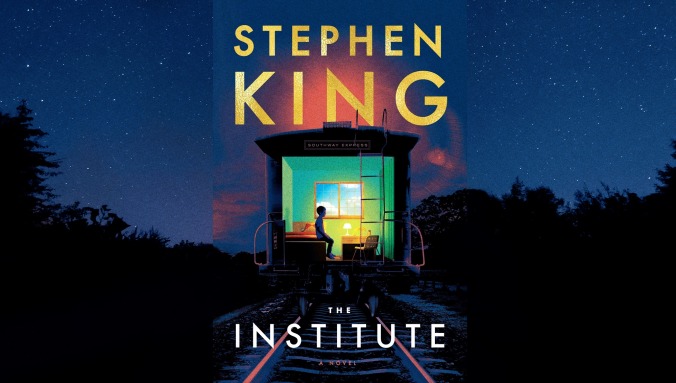Outside the door is a sterile hallway, a dingy playground, a sad cafeteria. There are other rooms, each made to resemble the home bedrooms of their residents. Luke meets Kalisha, George, Iris, Nick, and several others around his age. They all demonstrate some shade of telekinesis or telepathy—here dubbed TK and TP—and they’re all subject to tests from staffers who carry “zap-sticks” and are more than happy to administer backhanded slaps. There are painful injections, immersion tanks, and a woozy onslaught of spectral lights that, according to Luke, feel as if they’re “replacing his brain.” Eventually, all the kids disappear into an ominous “Back Half,” never to be seen again. Answers are scarce, and the staff’s claim that everyone is returned to their families following their stint in Back Half isn’t fooling anybody.
This revolving door adds a dose of compelling instability to the tale, but it works against the bonds that King is trying so hard to cement among his ensemble. By virtue of necessity, the narrative is told almost entirely from Luke’s perspective, robbing us of the strengths of King’s oft-peripatetic point of view, which in books like It, The Stand, and Under The Dome, emotionally mines myriad individuals for the benefit of the whole. Here characters either disappear or disengage from Luke just as they’re starting to crystallize, only to resurface after a new batch of characters has been introduced. The same goes for the Institute’s shadowy management and hatchet men, most of whom remain as opaque as the organization itself. One longs for King to dig into these villains, to make us despise them as we did Henry Bowers’ thugs in It or the sadistic henchmen of The Talisman’s Sunlight Gardener School.
Of course, as a handful of his colleagues point out in this New York Times piece, King’s not quite as cruel these days as he once was. The Institute has its fair share of blood, but it’s a shockingly idealistic and optimistic story, one that, in a well-intentioned if utterly cringeworthy sequence, directly echoes the slogan of Hillary Clinton’s 2016 presidential campaign. The warmth is welcome, though, especially in a story that investigates the nameless, faceless forces exploiting our most vulnerable. So, even if the bonds don’t quite resonate, the young heroes still do. Like Danny Torrance before them, they’re impeccably balanced between being wise beyond their years and as emotionally tender as their age would suggest. King’s always excelled at couching coming-of-age narratives in moments of horror, and The Institute’s most thrilling stretch finds Luke reckoning with his own loneliness during a punishing test of mental and physical will.
That kind of journey won’t be unfamiliar to King fans, and it’s likely they’ll see The Institute as a return to form for an author who’s spent the last several years mired in supernatural crime fiction—like The Outsider, Mr. Mercedes—and collaborations—like Sleeping Beauties, Gwendy’s Button Box. The Institute is archetypal King in that it contains much of what we love about and associate with his name—powerful kids, supernatural forces, small towns, heartfelt explorations of friendship—but it’s also a grander glimpse of the bright-eyed King we saw with last year’s hokey Elevation. It’s easy to miss the guts, but contrary to what some might think, nobody reads King just for the guts.









































